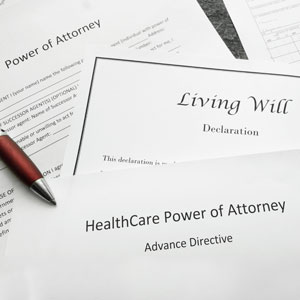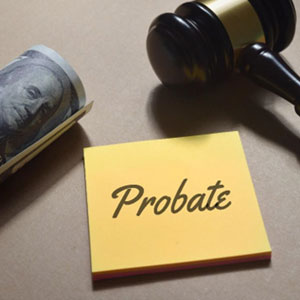
In this article, you can discover… How to assess your needs and options as an older adult. The legal documents you’ll need to plan for long-term care. How to safeguard your rights with the help of an attorney. How Should I Assess My Long-Term Care Needs In My Tampa, Florida Estate Plan? A good estate planning and elder law attorney can work with you from a variety of angles to help you plan for the future. An attorney can explore your and your family’s concerns and take a careful look at your assets. They can also examine your estate planning goals and consider your long-term medical and emotional needs. A good lawyer will also help you understand eligibility requirements when it comes to paying for long-term care, whether that be through veterans’ benefits, Medicaid, advanced life insurance options, or long-term care insurance. What Role Does Medicaid Play In Long-Term Care Planning? One of the worst mistakes you can make is to assume that you would never want or need Medicaid. Medicaid is a federally funded program that helps individuals and families pay for long-term care, and many people find it…Read More

In this article, you can discover… The role and benefits of digital estate planning. The types of assets you can include in a digital estate plan. How an attorney can help you organize and manage your digital assets. What Is Digital Estate Planning? Digital estate planning helps protect your digital assets, such as cryptocurrency, passwords, data stored in the cloud, and social media information. Digital estate planning ensures that people you trust can access and control your digital information if you become incapacitated or pass away. What Are The Legal Considerations For Digital Estate Planning? These days, you are strongly encouraged to include language in your will or trust to appoint a trustee or personal representative to have continued access to your digital information. An attorney can also help you understand and navigate privacy and user agreements for online services in a way that helps you maintain control through estate planning. What Assets Can I Include In My Digital Estate Plan? Assets that you can include in your digital estate plan include… Information related to cryptocurrency Social media accounts Social media content that you’ve created and uploaded Photos stored on…Read More

Creating healthcare directives is an essential part of planning for your future in Florida. From appointing a healthcare surrogate to outlining your wishes for life-sustaining treatments, these tools provide peace of mind and prevent potential confusion for loved ones and medical providers. This guide walks you through the key steps of setting up healthcare directives in Florida, helping you make informed decisions. In this article, you can discover… The importance of healthcare directives in Florida and how they ensure your medical preferences are respected. Key information to include in your healthcare directive, such as choosing a healthcare surrogate and specifying treatment preferences. Common mistakes to avoid when creating a healthcare directive, like not updating the document as circumstances change. What Are Healthcare Directives? Why Are They Important To Have In Florida? Healthcare directives are legal documents that outline your healthcare preferences in the event you become unable to communicate them yourself. In Florida, these directives may include a living will, which details the medical care you wish to receive, and a healthcare surrogate designation, which appoints someone to make decisions on your behalf. They are essential for ensuring your medical…Read More

In this article, you can discover… The unique characteristics of elder law. Common challenges faced by seniors and how elder law can help them. How an attorney can help protect your rights and interests as an elder. What Is Elder Law And How Does It Differ From Other Legal Fields? Elder law covers a variety of legal categories that impact older adults, and there is some degree of intersection with estate planning. Elder law is focused on the needs of older people with disabilities, dementia, and vulnerabilities, addressing quality of life issues and paying for long-term care. What Are The Legal Rights Of Seniors Under Elder Law In Florida? Seniors have many rights under elder law in Florida. For example, if a senior is part of incapacity proceedings for a elder law case, they have the right to an attorney, the right to object to the proceedings, and the right to inspect certain documents related to assets in proportion to their capacity level. However, if a person is entirely incapacitated, then they are not required to be given a copy of the accounting. Elder law helps ensure that older adults…Read More

In this article, you can discover… The role and benefits of a trust protector. The difference between a trust protector and a trustee. When to appoint or remove a trust protector. What Is A Trust Protector? A trust protector is named within the trust or is appointed by the court. They exercise certain powers over the trust and are given special legal oversight. The trust protector, however, is limited by what the terms of the trust allow them to do and can only make certain changes as needed. How Does A Trust Protector Differ From A Trustee In Florida? Both a trustee and a trust protector have a fiduciary duty to the beneficiaries. Both have certain important legal responsibilities. However, the trust protector differs in that they are not the initial person named to oversee the trust. Rather, they are appointed (often under court supervision by the courts) to take a second look at the trust and make minor changes as needed. For example, the trust protector might fix a mistake or make adjustments in light of changing tax laws. What Are The Benefits Of Appointing A Trust Protector For…Read More

In this article, you can discover: How notifying creditors is a crucial step in estate administration. The role of the probate court in overseeing creditor notifications. The process of settling debts and the limitations on creditors in probate cases. What Is The Purpose Of Notifying Creditors During The Probate Process? Navigating the probate process can be a complex journey, especially when it comes to dealing with creditors. The law mandates that we notify creditors during this process. This notification serves a dual purpose: it informs creditors of the decedent's passing and sets a clear deadline for them to file any claims. This step is crucial for properly administering the estate, as it includes settling any outstanding debts. Who Is Required To Notify Creditors Of The Death? The responsibility of notifying creditors falls on the shoulders of the personal representative. Their task is to identify the decedent's known and ascertainable creditors and, with the assistance of their attorney, ensure that these creditors receive the required notices. This role is vital in ensuring the smooth progression of the probate process. What Is The Typical Procedure For Notifying Potential Creditors Of A Deceased…Read More

In this article, you can discover: Why nominating guardians is essential for children with special needs. How to address long-term needs in your estate planning. The importance of clear documentation to prevent confusion and conflict. What Estate Planning Documents Are Necessary To Set Up A Guardian For A Child With Special Needs? If you're a parent of a child with special needs, it's crucial to have a solid estate plan in place. Here are some essential estate planning documents you may need: Will: In your will, you can specify your wishes regarding instructions for how you want your assets to be distributed for the care of your child. Special Needs Trust (SNT): A special needs trust allows you to set aside funds for the benefit of your child without jeopardizing their eligibility for government benefits like Medicaid or Supplemental Security Income (SSI). Letter of Intent: While not a legal document, a letter of intent provides important information about your child's needs, routines, preferences, and other details that can help the guardian understand and care for them effectively. Advance Healthcare Directive: This document outlines your wishes for medical care in case…Read More

In this article, you can discover: The critical role of notifying creditors in the probate process. How the personal representative ensures the estate's smooth administration. The importance of adhering to legal requirements for creditor notifications. What Important Steps Should I Take When A Parent Or Other Family Member Dies? When a loved one passes away, it's a time of grief and confusion. In addition to funeral planning, there are several essential steps you need to take. First, check if they had any pre-arranged funeral or burial plans. This can ease some of the burden during this difficult time. Next, ensure a legal pronouncement of death is obtained, typically a death certificate, usually arranged by the funeral home. It's also important to notify close friends and family, secure any property and personal items, and inform their employer of the sad news. These are important steps in the early stages following the loss of a loved one. Can Funeral Expenses Be Included In Your Estate Plan? Planning for funeral expenses is a personal choice. It's a thoughtful decision that can provide clear guidance for your loved ones during a difficult time. By…Read More

Do you own real estate? Is it your home? A vacation home? Or rental property? It’s important to pay special attention to how you own your real estate. Here we take a look at the different types of real estate and information about the best form of ownership. This is important when you’re thinking about estate planning and asset protection. Your Home Because your primary residence (your homestead) receives special tax treatment, be very careful with how you own your home. In states like Florida, tenancy by the entirety offers married couples creditor protection. This protection is from the creditors of one of the spouses while still preserving relevant tax benefits. It also allows automatic transfer of ownership to the surviving spouse upon the death of the first spouse without court involvement. Transferring ownership of the primary residence to a joint revocable trust may also be an option if you live in a state that allows the tenancy of the entirety protection to transfer to the joint revocable trust. Ownership by the trust also means that the real estate will pass through the trust document instead of the probate process.…Read More

Where there is a Will, there is not always an estate plan. A Will is a good start, but you need more. First, a Will allows you to do the following: Direct who inherits your property after your death Nominate an executor (personal representative) to administer your estate Nominate legal guardians for your minor children Second, a Will does not complete your estate planning For example, a Will is limited to what happens upon your death. What if you get very sick or become incapacitated? A Will is not going to allow your family or other trusted people to help you manage your finances, legal matters or your health care. At the very least, a proper estate plan should also include the following: 1. A way for someone you trust to manage your finances and legal affairs if you can’t during your lifetime With a Durable Power of Attorney, you can name someone that you know and trust to manage your legal and financial affairs. Click here to watch a short video about a Durable Power of Attorney. 2. A way for someone you trust to manage your health care…Read More
